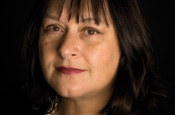He refutes the accusation that advertising has too many Oxbridge graduates because, while there might plenty of "Ox-", there is scant "-bridge" to be found.
Rory says: "It's an important distinction. After all, if you want to populate the agency of the future, do you fill it with people from a place where they split the atom, discover DNA and write Principia Mathematica or do you want people who have spent three years poncing about in a linen suit while carrying a stuffed bear?"
I wonder whether that's as true a depiction of the media side of the industry. Are we really awash with flowery, fluffy arts graduates at the expense of rational and logical scientists?
Surely we media types are the ones who can work out 70% of seven without blinking and can chew up pages of TGI cross-tabs and spit them out as a media plan.
If anything, media people have always suffered in the traditional advertising hierarchy because of a perceived relative lack of imagination, intuition and general creativity. Most media companies, whether agency or owner, are busy building their creative credentials - making content, generating PR, staging events and such like.
The IPA addresses this art versus science conundrum with its concept of Diagonal Thinking; it has proved that people from all advertising sectors are a bit special, because they combine literal, logical thinking with lateral creativity, a rare quality in the general population. So presumably, if a hybrid university called Oxbridge existed, its students would be destined for stardom in advertising.
But I support Rory's view that we need at least as much science in the industry as art. And while media people can't be accused of ignoring numbers, we often focus on the wrong ones. Rory exhorts us all to embrace "the sciences of behavioural economics, neuroscience, informational economics and Darwinian psychology", as opposed to the surrogacy of media metrics.
And to prove they are serious, the IPA has organised an evening event where Professor Geoffrey Miller, evolutionary psychologist and author of Spent: sex, evolution and the secrets of consumerism, will share his thoughts on how his theories relate to our industry.
And there's just time for you to make it because it takes place tomorrow, Wednesday, 9 September, at the IPA.


